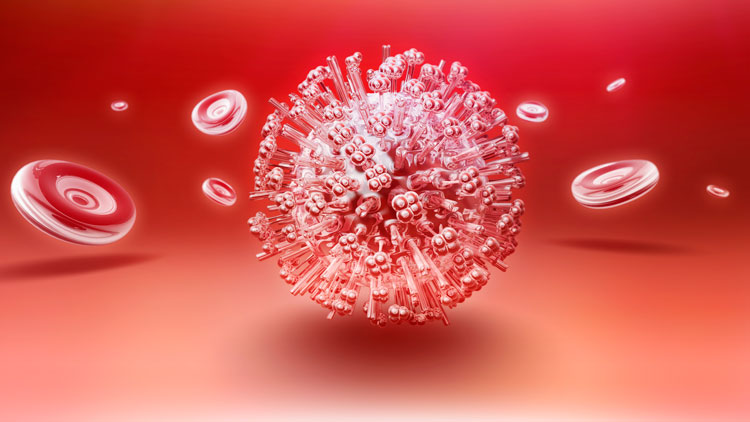
What is the flu?
The flu is caused by a virus known as influenza. Viruses are particles that work by infecting cells in the body. A virus works by making thousands of copies of itself inside the cell. Eventually the cell bursts open and the virus particles spread to new cells.
As the body’s cells are destroyed, a person starts to become ill. The flu affects cells in a person’s respiratory system. This means the flu makes it harder for people to breathe. The tissue in the lungs and airway become swollen.
When a sick person coughs, sneezes, or speaks they can spread tiny droplets of fluid that contain influenza virus. A healthy person standing nearby may accidentally breathe in these droplets and become sick.
When is flu season?
Unlike summer, fall, winter, and spring, flu season doesn’t have a start and end date. Flu season refers to the time of year when people are most likely to get the flu. Flu season usually begins in late fall and ends in early spring. Most cases of the flu are seen in February, when the weather is cold and people spend a lot of time together indoors.
What can you do to prevent the flu?
The best “medicine” for the flu is not to get sick! Wash your hands before you eat. Wash your hands after being around someone who may be sick. This will remove germs on your hands. It is also important for people who have the flu to cover their mouths and noses when they cough or sneeze. This will help prevent droplets with viruses from reaching healthy people. There is also a medication, called the flu vaccine, that can be taken each year. People who get the vaccine are less likely to get the flu.
What Do You Think? Why is it important to prevent the spread of the flu?
Photo Credit: Ralf Hiemisch/Getty Images



